Bihar | The first phase of the Bihar assembly elections is set to begin on Thursday as more than 3.75 crore voters will determine the fate of 1,314 candidates contesting across 121 constituencies in the state. Among the prominent contenders are Tejashwi Yadav, the chief ministerial candidate of the Indian National Developmental Inclusive Alliance, and Deputy Chief Minister Samrat Choudhary from the Bharatiya Janata Party.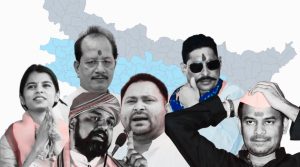
Tejashwi Yadav is eyeing a third consecutive win from Raghopur where he faces BJP candidate Satish Kumar, who had earlier defeated Yadav’s mother and former chief minister Rabri Devi in 2010 while contesting on a Janata Dal United ticket. The contest in Raghopur was expected to draw attention after Jan Suraaj Party founder Prashant Kishor initially declared his intention to challenge Yadav on his home turf. However, Kishor later decided not to enter the fray, and his party fielded a lesser-known candidate, Chanchal Singh.
In the nearby constituency of Mahua, Tejashwi’s elder brother Tej Pratap Yadav, who leads his own outfit Janshakti Janata Dal, is locked in a multi-cornered contest. The elder son of RJD president Lalu Prasad aims to win the seat from sitting RJD MLA Mukesh Raushan. The presence of Lok Janshakti Party Ram Vilas nominee Sanjay Singh, representing the NDA, and Independent candidate Ashma Parveen, the 2020 runner-up, has added complexity to the race.
Several ministers in the Nitish Kumar-led government, including Deputy Chief Ministers Samrat Choudhary and Vijay Kumar Sinha, are also seeking electoral validation in this phase. Sinha is contesting from Lakhisarai, aiming for a fourth straight victory against Congress candidate Amresh Kumar and Jan Suraaj Party nominee Suraj Kumar. Choudhary, who has been serving his second term in the legislative council, is contesting a direct election after nearly a decade from Tarapur. His performance is seen as crucial to solidifying his growing influence within the BJP, a party he joined less than ten years ago. He faces RJD’s Arun Kumar Sah, who narrowly lost the same seat in 2020 by around 5,000 votes.
BJP minister Mangal Pandey, also a former state party president, is contesting his first assembly election from Siwan. He faces RJD veteran Awadh Bihari Chaudhary, a multiple-term MLA and former assembly Speaker. The neighboring seat of Raghunathpur is drawing attention due to the candidature of Osama Shahab, the son of late gangster-turned-politician Mohammad Shahabuddin, who dominated the region for decades. The NDA has used his candidature to accuse the RJD of promoting the return of what they term “jungle raj,” with leaders such as Himanta Biswa Sarma even remarking that his name evokes the memory of terrorist Osama Bin Laden.
Other notable contestants include folk singer Maithili Thakur representing the BJP from Aliganj, Bhojpuri star Khesari Lal Yadav contesting from Chhapra on an RJD ticket, and actor Ritesh Pandey contesting from Kargahar on behalf of the Jan Suraaj Party.
Around a dozen ministers, mostly from the BJP, are in the electoral field in this phase. They include Nitin Nabin from Bankipur, Sanjay Saraogi from Darbhanga, Jibesh Kumar from Jale, and Kedar Prasad Gupta from Kurhani, each defending their seats. JD-U ministers Shrawan Kumar from Nalanda and Vijay Kumar Chaudhary from Sarairanjan also face key contests.
One of the most closely watched battles is in Mokama, where JD-U candidate Anant Singh, currently in jail for his alleged role in the killing of a Jan Suraaj Party supporter, is facing RJD’s Veena Devi, the wife of former gangster Suraj Bhan.
The Election Commission reported that Digha constituency, representing the western part of Patna, has the highest number of voters at about 4.58 lakh, while Barbigha in Sheikhpura district has the lowest at around 2.32 lakh. Kurhani and Muzaffarpur each have 20 candidates contesting, the highest in this phase, while the reserved constituencies of Bhorey, Alauli, and Parbatta have only five candidates each.
Voting will take place at 45,341 polling stations, with a majority located in rural regions. The total number of voters in this phase is 3.75 crore, including 10.72 lakh newly registered electors. The number of voters aged 18 to 19 stands at 7.38 lakh. The Election Commission noted that the population of the constituencies going to polls is around 6.6 crore, meaning nearly three crore residents are not on the voters’ list, mainly due to age or other factors.
The ongoing assembly elections follow a recent special intensive revision of electoral rolls, which now record 7.24 crore registered voters across Bihar, roughly 60 lakh fewer than before the revision exercise.

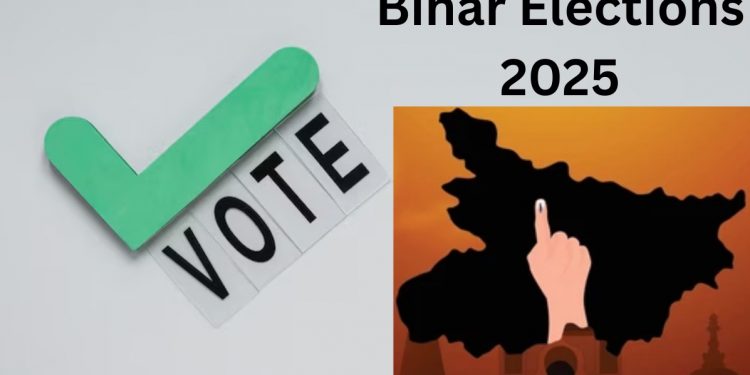
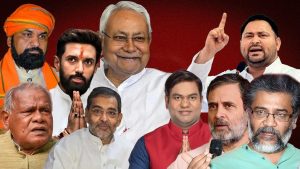
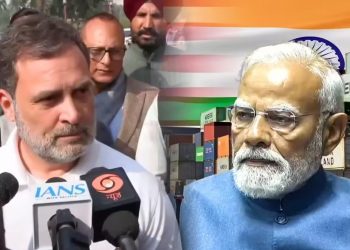
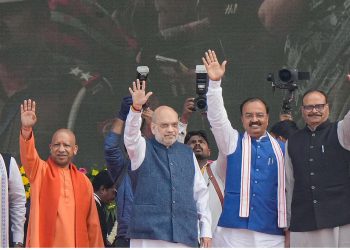
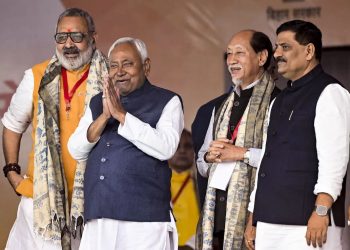
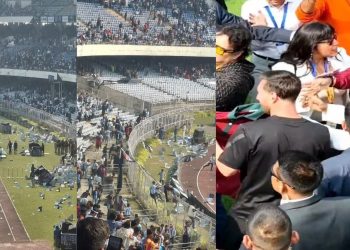
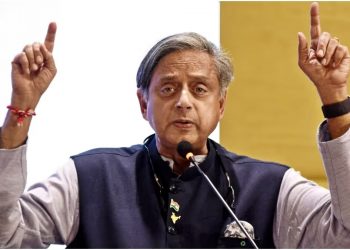
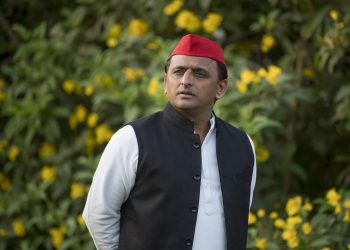


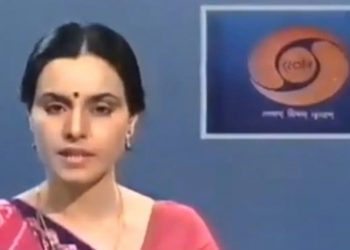
Discussion about this post